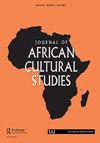Pan-Africanism and the Affective Charges of the African Union Building in Addis Ababa
IF 0.7
2区 社会学
Q2 CULTURAL STUDIES
引用次数: 4
Abstract
ABSTRACT In 2002, the African Union (AU) inaugurated its Chinese-funded, designed, built, and furnished headquarters building in Addis Ababa, Ethiopia, receiving the admiration of African leaders. The building was hailed as a new material expression of pan-African unity. This article explores the affective potency of the AU built environment to unsettle and unfurl conceptions of pan-African identity. Beginning with an analysis of sensory impressions of the outer appearance and architectural forms of the built space, the article meanders through its inner structures to describe how these assemble affective intensities around the notion of pan-Africanism. In particular, it concentrates on the experiences of Addis Ababa residents and AU officials who express divergent sentiments and visions of pan-Africanism. It argues that affective reactions associated with sensorial encounters with built forms, mediated by pre-existing discourses, reveal the divergent modes of belonging to pan-Africanism. The affective potency of the AU is of acute interest because of its presumed role as a mediator in nationalist conflicts, not least those currently underway in Ethiopia itself.泛非主义与亚的斯亚贝巴非洲联盟建设的情感负担
2002年,非洲联盟总部大楼在埃塞俄比亚首都亚的斯亚贝巴落成,由中国出资、设计、建造和装修,受到非洲各国领导人的赞赏。该建筑被誉为泛非团结的新材料表达。本文探讨了非盟建立的环境对动摇和展开泛非认同概念的情感效力。本文首先分析了建筑空间的外观和建筑形式的感官印象,然后通过其内部结构来描述这些情感强度是如何围绕泛非洲主义的概念聚集在一起的。它特别关注亚的斯亚贝巴居民和非盟官员的经历,他们表达了不同的情绪和泛非主义的愿景。它认为,情感反应与感官遭遇与建筑形式相关,通过预先存在的话语调解,揭示了属于泛非主义的不同模式。非盟的影响力之所以引起人们的极大兴趣,是因为它被认为是民族主义冲突的调解人,尤其是目前正在埃塞俄比亚发生的民族主义冲突。
本文章由计算机程序翻译,如有差异,请以英文原文为准。
求助全文
约1分钟内获得全文
求助全文
来源期刊

Journal of African Cultural Studies
Multiple-
CiteScore
1.70
自引率
10.00%
发文量
13
期刊介绍:
The Journal of African Cultural Studies publishes leading scholarship on African culture from inside and outside Africa, with a special commitment to Africa-based authors and to African languages. Our editorial policy encourages an interdisciplinary approach, involving humanities, including environmental humanities. The journal focuses on dimensions of African culture, performance arts, visual arts, music, cinema, the role of the media, the relationship between culture and power, as well as issues within such fields as popular culture in Africa, sociolinguistic topics of cultural interest, and culture and gender. We welcome in particular articles that show evidence of understanding life on the ground, and that demonstrate local knowledge and linguistic competence. We do not publish articles that offer mostly textual analyses of cultural products like novels and films, nor articles that are mostly historical or those based primarily on secondary (such as digital and library) sources. The journal has evolved from the journal African Languages and Cultures, founded in 1988 in the Department of the Languages and Cultures of Africa at the School of Oriental and African Studies, London. From 2019, it is published in association with the International African Institute, London. Journal of African Cultural Studies publishes original research articles. The journal also publishes an occasional Contemporary Conversations section, in which authors respond to current issues. The section has included reviews, interviews and invited response or position papers. We welcome proposals for future Contemporary Conversations themes.
 求助内容:
求助内容: 应助结果提醒方式:
应助结果提醒方式:


